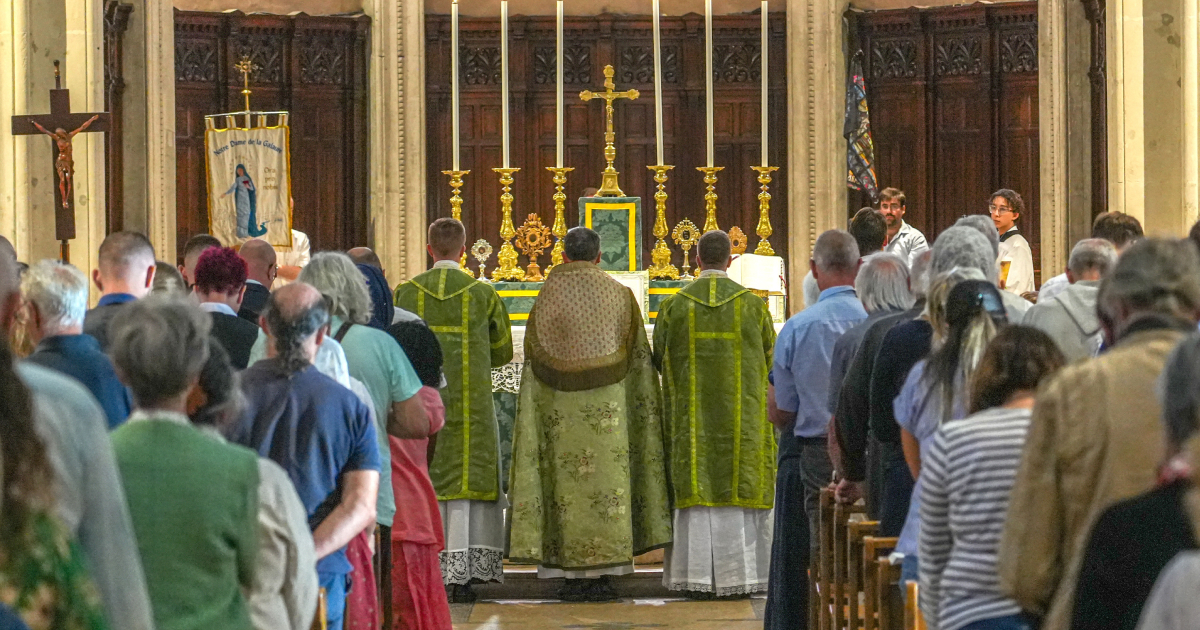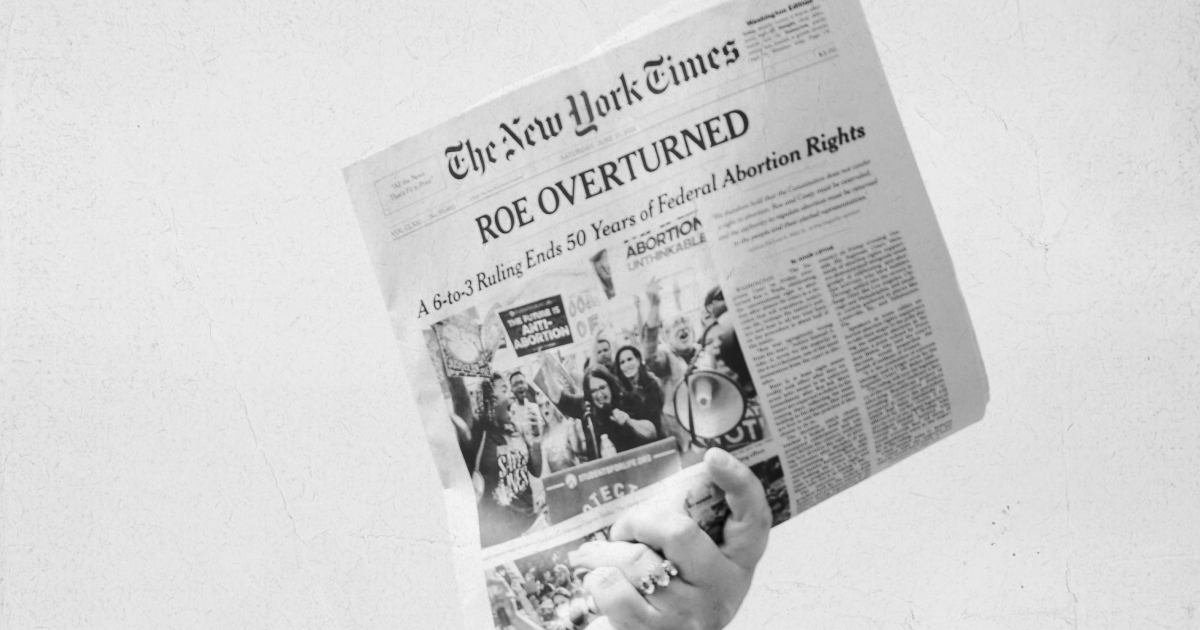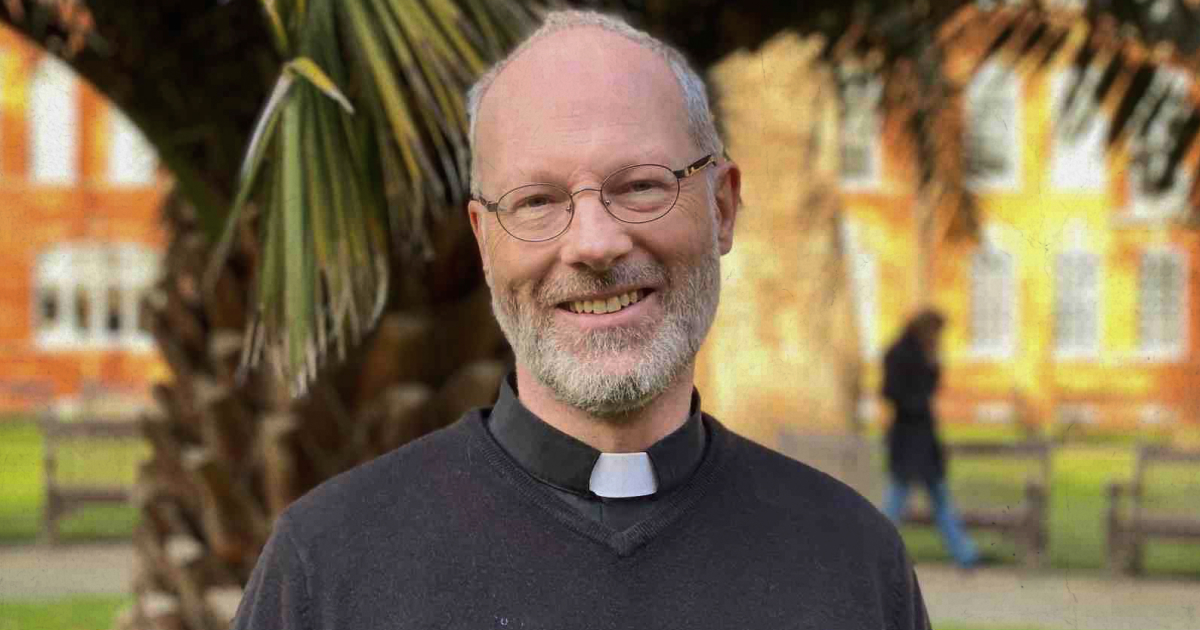News of a “revival” in the Western world will never cease to be jarring to me, especially when the supposed surge is found amongst men of my generation. Having found myself throughout school and university moving perpetually against the grain of public opinion, to hear I am now in the “in” crowd has, truthfully, left me in a state of disbelief.
Like the elder of the two brothers from Christ’s famous parable, I fear I have been more often than not sceptical of the news. And yet here we are, more data is in, from the US this time: the prodigal sons are indeed coming home.
Much like the Bible Society’s “Quiet Revival” report from last April, which revealed an increase in church attendance across the UK, particularly amongst Gen Z males, hot-off-the-press representative data from the “State of the Church” project by Barna – an organisation that describes its mission as being to “help Christian leaders understand the times and know what to do” – shows a similar pattern across the pond in the US.
The US has seen a 15 per cent rise since 2019 in Gen Z men who have made a “personal commitment to follow Jesus”. Where once Gen Z and millennials were trailing behind, they are now out-filling older generations in the pews. Furthermore, the shift is not only generational, but also gendered, with male weekly church attendance sitting at 43 per cent compared with 36 per cent from their female counterparts. This is the largest recorded gender gap since Barna began reporting in 1984, and a flip from the previous female-dominant norm.
When discussing the future of the Church such statistics cannot go unnoticed, especially in terms of priestly vocations, the passing on of the Faith to children, and how we understand gender roles in the Church. Nevertheless, given their unprecedented nature, there is much to be pondered when figuring out what they mean.
Of the many astonishing statistics, one of the most fascinating is that it is not only young, zealous, childless men who are in attendance on Sundays, but increasingly fathers also. The report states that among the parents of minors, it is married fathers who have the highest weekly church attendance.
There is rightly much debate as to why this is, with suggested reasons ranging from Church scandals, to political divides, to the struggles of balancing increasing time given to working life versus the requirements of the home – with responsibility for the latter still disproportionately skewing towards women.
Either way, this increased attendance on the part of fathers is certainly a mark of improvement and cause for celebration. The lack of their attendance for generations, leaving the burden solely for faithful mothers to carry, certainly contributed to the mass exodus from churches that took place over the course of the 20th and 21st centuries.
As such, we can hope we are witnessing the beginning of a time when men will fully live out the Gospel call. That they will become models of virtue for their wives and children, and learn to love them “as Christ loved the Church”. We can hope that what we are seeing is men assuming their roles as heads of their households – priests in their domestic church.
In his 2022 book Of Boys and Men, Richard Reeves notes that the active revolutionising of the role of women in society, which took place throughout the 20th century, had the knock-on effect of disrupting the role of men. Where meaning was once found in their role as “protector” and “provider”, many men found themselves stripped of such titles and left without a fulfilling path to follow.
The result: the falling behind of the average man at work and school, the normalising of fatherless homes, increasing trends of social isolation and, tragically, increased male suicides.
Some claim the solution to this is for men to abandon the idea of masculinity; others dream of turning back the clock to traditional “1950s gender roles”. Throughout the book, Reeves goes to great lengths to reject both.
Instead he calls for a similar re-defining of what it means to be a man to take place. And it is with this in mind that I embrace Barna’s results. Could it be that as men wrestle to figure out their place in the world, a fruit of this process will be a new-found keenness to invest in their spiritual lives? One can certainly hope.
The Church, by its community and teachings, has long been a home for people looking for wisdom, friendship and purpose. Anchored in an understanding that a fulfilled life is one that embraces the cross of service and sacrifice, it could very well be the place many men need to go to find meaning.
But despite the many positive changes seen in such surveys in regards to men, it must also be noted that the increasing gender gap is not a sign of a Church in good health. Whilst fathers being absent from the pews played a role in many children abandoning their faith, a 2021 survey by The Pillar on religious attitudes and practices indicates that the reverse scenario would not fare much better.
In the report, it found that of those raised Catholic, the greatest determinant of weekly church attendance later in life was not the sex of the churchgoing parent, but whether one or both parents attended.
Furthermore, despite there being a slight increase in women’s attendance, the widening of the gender gap here – and the reasons suggested for it – should be cause if not for concern then at least for discussion. Because to see the deepening divides that we are witnessing politically between men and women potentially bleed into the Church is alarming, especially if the result is one party feeling unable to attend.
With women skewing to the political Left, and men to the Right, it is worth reminding both camps that the Church has had a central role in championing core principles for all on each side of the political aisle, from the protection of the life of unborn children, to the Church's longstanding preferential treatment of the poor, to name just two.
Rather than fitting our faith within the tight confines of our politics, we should be centring our politics around the teachings handed to us by Christ and the Magisterium.
There is certainly optimism to be found in Barna's news of men returning to Church. But as we celebrate the return of the prodigal sons, we must also be ready to discern the unprecedented time we find ourselves in – for the sake of our prodigal daughters too.
Photo: Image by Arcadia





.jpg)


.jpg)








